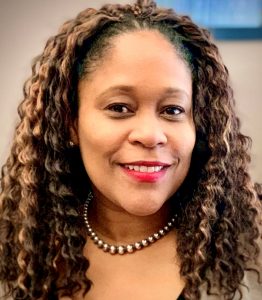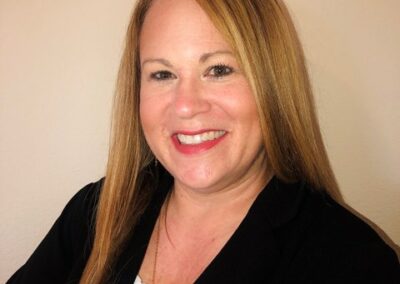
Dr. Jennifer Collier
Superintendent, KCPS
Jennifer Collier has served as an educator in Kansas City Public Schools for over 20 years. She has served in the capacity of Teacher, Assistant Principal, Principal, Director of Human Resources, Chief Human Resources Officer and Chief of Staff, and most recently, Superintendent. Jennifer earned a Bachelor’s degree from the University of Kansas, Masters of Arts in Education from Avila University, Educational Specialist in Educational Leadership from UMKC, and Doctorate of Education from UMKC. Jennifer also completed the National Institute of School Leaders (NISL) program and is a certified trainer of NISL. In this role, she has provided training for educators and school leaders across the state of Missouri. Jennifer is also PHR (Professional of Human Resources) certified as she leads the very critical work of the Human Resources department of KCPS.
Education has always played an integral role in Jennifer’s life, as she is from a family of educators. She is very passionate about education and believes that all children deserve access to a quality education, as it has the power to unlock doors of experience and opportunities that would otherwise be closed. In her role as Chief Human Resources Officer, she is dedicated to securing a workforce that has the capacity, will, and dedication to provide a quality educational experience for the children and families of Kansas City Public School.
Who is a Black hero or heroine that has motivated you in your career? / Who are you celebrating this Black History Month?
Mary McCloud Bethune. I deeply admire her passion, courage and determination to ensure that black children received a quality education during a time when Blacks were not considered worthy of education. Faced with racism, threats of violence, and extremely limited resources, she started the Daytona Normal and Industrial Institute in 1904. Daytona Normal and Industrial Institute later became Bethune Cookman College. She laid aside considerations for her own well-being, in order to secure education for black children. She was willing to die for this, and her persistence paid off.
This month I am celebrating black women who have been champions for equity down through the years. Their commitment, work and efforts historically benefitted so many causes that resulted in rights and opportunities extended to marginalized groups.
How has the history of Black and African American people in Kansas City impacted the work that you do?
There have been numerous African American pioneers in education in Kansas City. Because of their work and efforts, I and other people of color can be full participants in educational community. My mother is a former teacher and Principal in Kansas City, and I had an opportunity to observe her, and other dedicated African American educators provide meaningful learning opportunities for students in Kansas City. Observing their work and impact, inspires me to strive each day to lead and work in a way that advances equity, access and opportunities for the students in KCPS, where I serve.
What is the most essential work that must be done to ensure equity for Black students in Kansas City?
We must ensure that we are providing quality, robust learning opportunities for black students in Kansas City. Education is one of the most effective means of positively impacting a person’s life, and there is so much at stake when we are responsible for educating children. The quality of education that students receive directly correlates to their quality-of-life years down the road. Quality education, coupled with appropriate social and emotional supports and a culturally responsive learning environment, serves as a springboard of opportunity to set black students, as well as others, on an upward trajectory.
What is a cause or organization that you would encourage KC citizens to research this black history month?
An organization that I’d encourage folks to learn more about is Teachers Like Me, led by Dr. Trinity Davis. This organization engages in teacher recruitment, and in particular, recruitment of African American teachers. This is very important work because African American children, as well as children of other races, benefit from seeing folks that look like them teaching and leading. To be clear, this effort to increase black teachers does not suggest that non-black educators are ineffective when working with black children. As an African American, I can, without hesitation, think of a non-black educator who made an indelible positive imprint on my life. Equity and cultural responsiveness are more about one’s mindset, than they are one’s race. However, the presence of Black teachers and school leaders, signals to children that African Americans are thinkers, leaders, great organizers and that they can achieve the same. It is challenging to imagine yourself doing something if you never see anyone like you doing it. When children of color see reflections of themselves in leadership and positions of influence, psychological chains of racism and oppression are destroyed, and children are liberated to dream and envision their own leadership. African Americans are so much more than the limited, negatively-skewed images and stereotypes that historically have been so amply portrayed in the media. Black people are talented, intelligent, capable, and effective thought-partners in so many professions, and children need to see examples of this daily.



